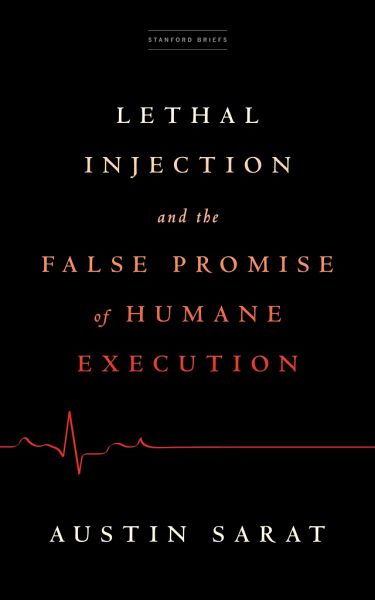
Lethal Injection and the False Promise of Humane Execution
Versandkostenfrei!
Versandfertig in über 4 Wochen
11,99 €
inkl. MwSt.

PAYBACK Punkte
6 °P sammeln!
"From the beginning of the Republic, this country has struggled to reconcile its use of capital punishment with the Constitution's prohibition of cruel punishment. Death penalty proponents argue both that it is justifiable as a response to particularly heinous crimes, and that it serves to deter people from committing them in the future. However, since the earliest executions, abolitionists have fought against this state-sanctioned killing, arguing, among other things, that the methods of execution have frequently been just as gruesome as the crimes meriting their use execution. Lethal injecti...
"From the beginning of the Republic, this country has struggled to reconcile its use of capital punishment with the Constitution's prohibition of cruel punishment. Death penalty proponents argue both that it is justifiable as a response to particularly heinous crimes, and that it serves to deter people from committing them in the future. However, since the earliest executions, abolitionists have fought against this state-sanctioned killing, arguing, among other things, that the methods of execution have frequently been just as gruesome as the crimes meriting their use execution. Lethal injection was first introduced in order to quell such objections, but, as Austin Sarat shows in this brief history, its supporters' commitment to painless and humane death has never been certain. This book tells the story of lethal injection's earliest iterations in the United States, starting with New York state's rejection of that execution method almost a century and half ago. Sarat recounts lethal injection's return in the late 1970s, and offers novel and insightful scrutiny of the new drug protocols that went into effect between 2010 and 2020. Drawing on rare data, he makes the case that lethal injections during this time only became more unreliable, inefficient, and more frequently botched. Beyond his stirring narrative history, Sarat mounts a comprehensive condemnation of the state-level maneuvering in response to such mishaps, whereby death penalty states adopted secrecy statutes and adjusted their execution protocols to make it harder to identify and observe lethal injection's flaws. What was once touted as America's most humane execution method is now its most unreliable one. What was once a model of efficiency in the grim business of state killing, is now marked by mayhem. The book concludes by critically examining the place of lethal injection, and the death penalty writ large, today"--








![A Treatise on the Law Relating to the Execution and Revocation of Wills and to Testamentary Capacity [microform]: With an Appendix Containing Cover A Treatise on the Law Relating to the Execution and Revocation of Wills and to Testamentary Capacity [microform]: With an Appendix Containing](https://bilder.buecher.de/produkte/66/66157/66157824n.jpg)



